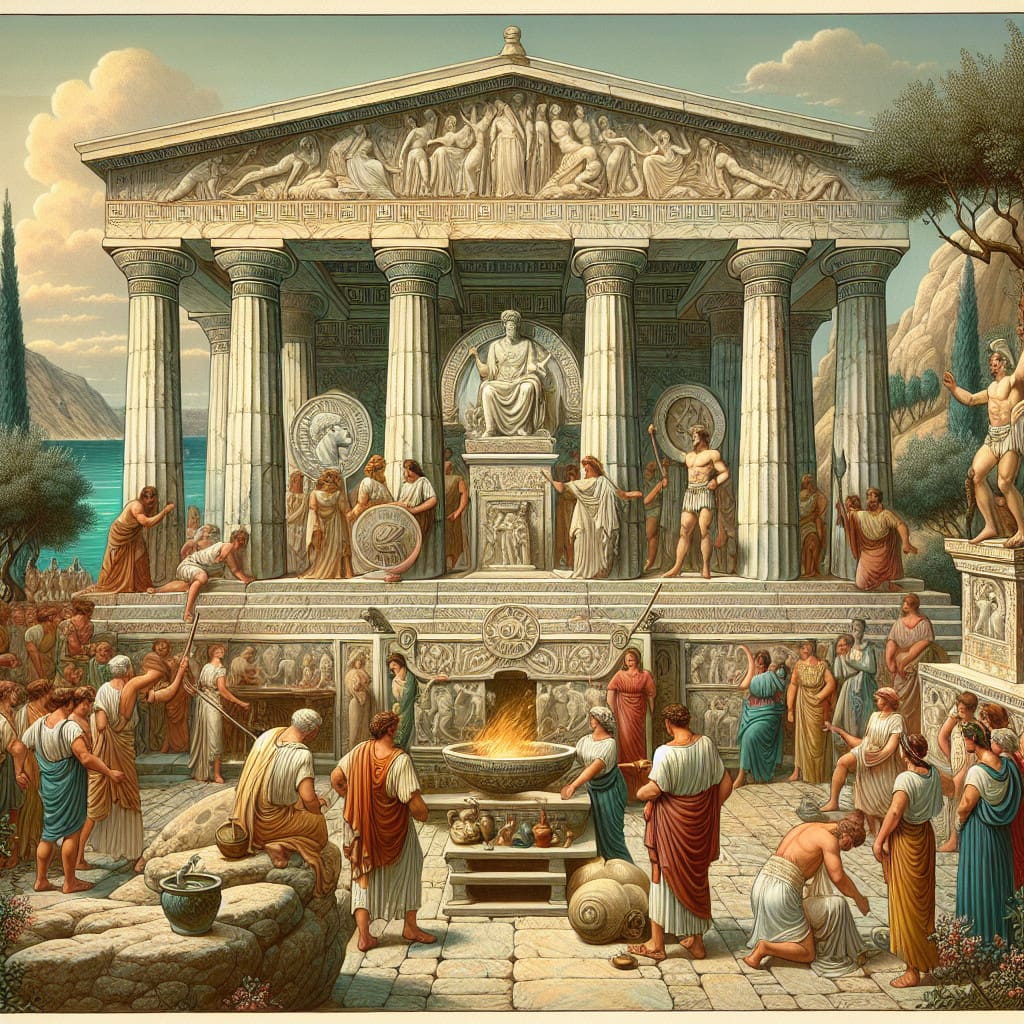The ancient world of the Greeks and Romans is a source of fascination for many. It is a world filled with gods, heroes, and mythical creatures that have become iconic symbols in popular culture. But there is another side to the ancient world, one that is often overlooked: pagan Greek religion. This article will explore the history, beliefs, and practices of pagan Greek religion, as well as how it has influenced modern culture.
Pagan Greek is a term used to refer to the religious practices and traditions of the ancient Greeks. It is an umbrella term that encompasses a variety of religions, including polytheism, henotheism, and animism. Paganism is an ancient belief system that is still practiced in some parts of the world today.
What Is Pagan Greek?
Pagan Greek is a term used to refer to the religious practices of the ancient Greeks. Pagans believed in multiple gods, goddesses, and other spiritual entities, and their beliefs were often intertwined with nature and natural cycles. Pagan Greek mythology was a rich source of stories and legends that were often used to explain natural phenomena, as well as to influence political and social life.
Paganism was a major influence on the ancient Greek culture. Many of the gods and goddesses of Greek mythology were based on the ancient pagan gods and goddesses. The gods of the Olympian pantheon, such as Zeus, Hera, Apollo, and Athena, were all originally pagan gods.
How Is Pagan Greek Different From Other Religions?
Pagan Greek is different from other religions in that it does not have a single set of beliefs or teachings. Rather, paganism is an umbrella term that encompasses a variety of beliefs and practices.
Paganism is often seen as a polytheistic religion, as it involves the belief in multiple gods and goddesses. However, some pagans may also practice henotheism, which is the belief in a single god, or animism, which is the belief in spirits or other supernatural entities.
What Are The Primary Features Of Pagan Greek?
The primary features of Pagan Greek are the worship of multiple gods and goddesses, the belief in supernatural forces, and the celebration of natural cycles.
Pagans believed in multiple gods and goddesses, and each was associated with a particular aspect of nature or a particular aspect of life. For example, Zeus was the king of the gods, and was associated with lightning, rain, and thunder. Aphrodite was the goddess of love and beauty, and was associated with fertility and romance.
Pagans also believed in supernatural forces and spirits, such as the Fates, who were believed to control the destiny of mortals. Pagans also believed in the power of magic and the ability to manipulate natural forces for their own benefit.
Finally, the celebration of natural cycles was an important part of Pagan Greek life. The most important of these cycles was the four-year cycle of the Olympiad, which was celebrated throughout the Greek world. Other important cycles included the lunar cycle, the solar cycle, and the seasonal cycle.
What Are Some Examples Of Pagan Greek Practices?
Pagan Greek practices included animal sacrifices, fertility rituals, and the worship of gods and goddesses. Animal sacrifices were offered to the gods and goddesses in order to gain favor or to ensure success in war. Fertility rituals were also common, and involved the use of fertility symbols and offerings to ensure a good harvest or to bring about a successful marriage.
In addition, many gods and goddesses had their own festivals and rituals associated with them. For example, the festival of Dionysus was celebrated in honor of the god of wine, and the festival of Demeter was celebrated in honor of the goddess of the harvest.
What Is The Significance Of Pagan Greek?
The significance of Pagan Greek lies in its influence on the culture, literature, and art of the ancient world. The gods and goddesses of the Olympian pantheon were an integral part of the culture of the ancient Greeks, and their stories and legends were often used to explain natural phenomena and to influence political and social life.
The beliefs and practices of Pagan Greek also had a major influence on the development of Western civilization. Many of the ideas and values of the ancient Greeks, such as democracy, justice, and honor, can still be seen in modern society.
The legacy of Pagan Greek is still alive today, as many people continue to practice aspects of the ancient religion. Although the beliefs and practices of Pagan Greek may have changed over time, they still remain an important part of the culture and history of the ancient world.
The Pagan Greek religion has been a source of fascination and inspiration for centuries. It is a complex system of beliefs and practices that have shaped the lives of many people throughout history and continue to do so today. It is important to remember that Paganism is not a monolithic religion, but rather a collection of religious practices and beliefs that vary from region to region and from person to person. It is a religion that encourages individual expression, exploration, and connection to the natural world. Paganism is an ancient and powerful religion that has much to offer to those who seek its wisdom and guidance. Ultimately, Pagan Greek religion is a rich and diverse spiritual tradition that continues to bring insight, joy, and connection to its practitioners.





